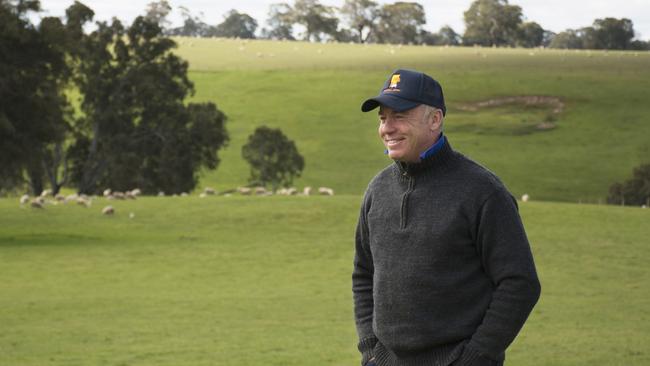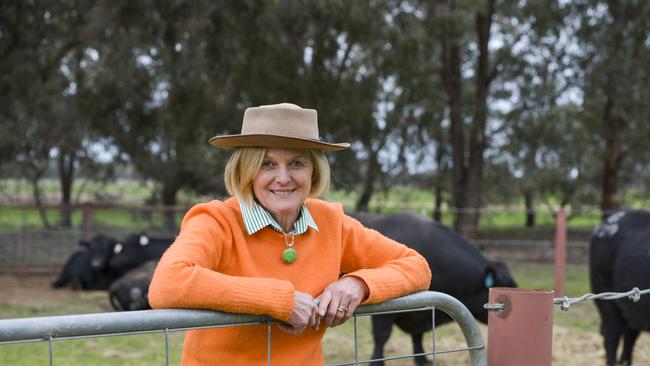Soil carbon will be required by farmers to offset their own emissions
Despite many producer’s best intentions, they are finding that there is still a long way to go until reaching net zero under the current guidelines.
Livestock producers have raised concerns that despite being leaders in productivity and focusing on their farm’s environment, carbon accounting measures have judged their enterprises as “far from carbon neutral”.
And a prominent sustainability expert says Australia’s grazing systems are reliant on research to unlock ways economically viable farms can achieve carbon neutrality.
Academics and producers also warn productive agriculture will not be able to supply soil carbon to sell off credits, or prop up other industries to offset their emissions, as it will require all its own offsets to balance its own environmental books.
Progressive livestock producers, Tim and Georgie Leeming, Paradoo Prime, Pigeon Ponds, recently participated in a carbon accounting pilot audit.

Despite recognition as industry leaders, while also improving their land, the Leemings were “disappointed” the measures reported their farm was “a long way off” neutrality.
This is despite 12.5 per cent of their farm planted to trees or protected native vegetation — more than many properties.
Mr Leeming was concerned although they were “doing all the right things, using best farm management practices, protecting soils and water ways and enhancing biodiversity we are still a long way off carbon neutral”.
And, he couldn’t see a way to carbon neutrality. “At the moment, no, that looks impractical; a lot of people who are held up in lights for being, apparently, carbon neutral, are not economically viable, and you can’t last long if you’re not economically viable,” he said.
“I’m worried farmers will get nothing out of this and (audits) will be based on flawed fundamentals, things like inflated tax deductions for monoculture plantations like bluegums that add little to biodiversity, and only desk jockeys and traders end up making money.”
On the red meat industry’s Carbon Neutral 2030 aspiration, Mr Leeming could not see “how the hell we’ll get there”.
Richard Eckard, sustainable agriculture professor at the University of Melbourne said graziers like the Leemings, whose audit he was familiar with, were striving to do all they could.
Yet, many had “little room to move” to be carbon neutral.
“It’s an issue and a challenge as the industry knows it has to move (towards carbon neutrality) … the answer is now on the research side of the equation,” Prof Eckard said.
Now, methane inhibitor products can be focused on feedlots where livestock could be fed supplements – such as seaweed – daily. But this technology was not yet practical in extensive grazing.
Slow-released products like rumen boluses were being developed to suit grazing systems and would “take a big slice of methane off”, but this was about two years away.
Meanwhile Prof Eckard said it was “dangerous” for agriculture’s soil carbon to be marketed as an offset for others.
“Agriculture industries will need their own soil carbon, there won’t be enough to go around to save other industries,” Prof Eckard said, adding the meat industry’s CN2030 goal would not be achievable if other industries, like coal, lent on agriculture’s stored carbon.

Lucinda Corrigan, of Rennylea Angus, takes an optimistic view on how Australia’s beef industry will compare on an international level on emissions intensity as efficiency gains are made.
“I don’t know if we will get to CN2030, but we will give it a good go,” she said, adding that promising research was underway.
But she agreed producers running productive enterprises aiming for neutrality “won’t be in a position to be trading carbon, but I do see a range of options in biodiversity credits”.





